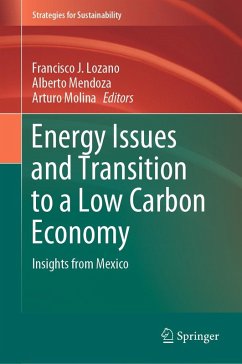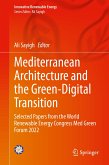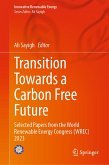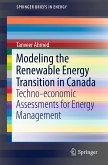Several human knowledge disciplines and topics are covered in the book, including public policy, economics, transboundary issues, electricity and thermal energy, residual biomass use, distributed energy systems and its management, and decision-making tools.
An analysis is considered regarding energy issues interaction in the Mexican-USA border, which differ in both countries from pricing and policy, and the work and research that has been developed for transboundary energy trade.
Dieser Download kann aus rechtlichen Gründen nur mit Rechnungsadresse in A, B, BG, CY, CZ, D, DK, EW, E, FIN, F, GR, HR, H, IRL, I, LT, L, LR, M, NL, PL, P, R, S, SLO, SK ausgeliefert werden.









